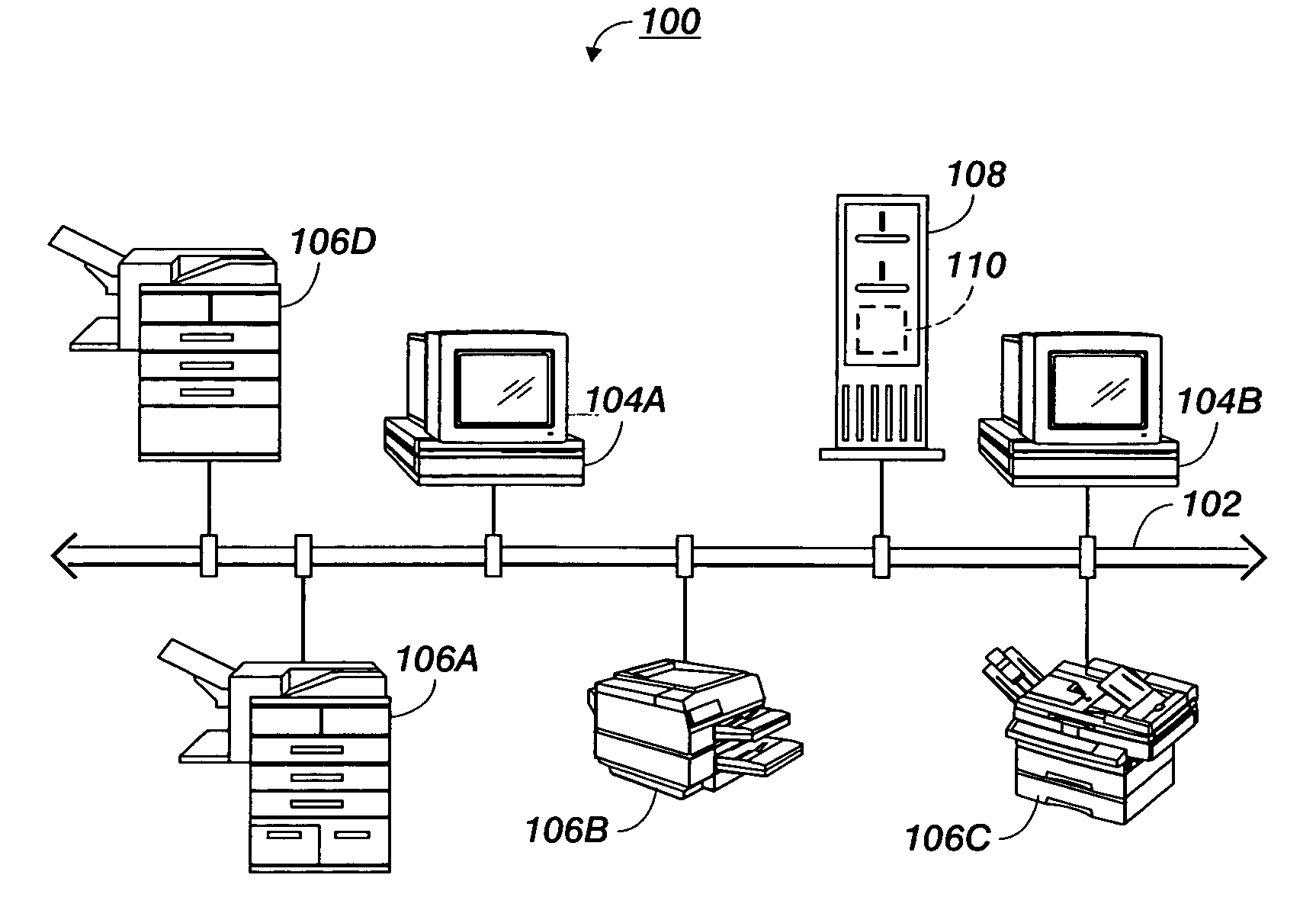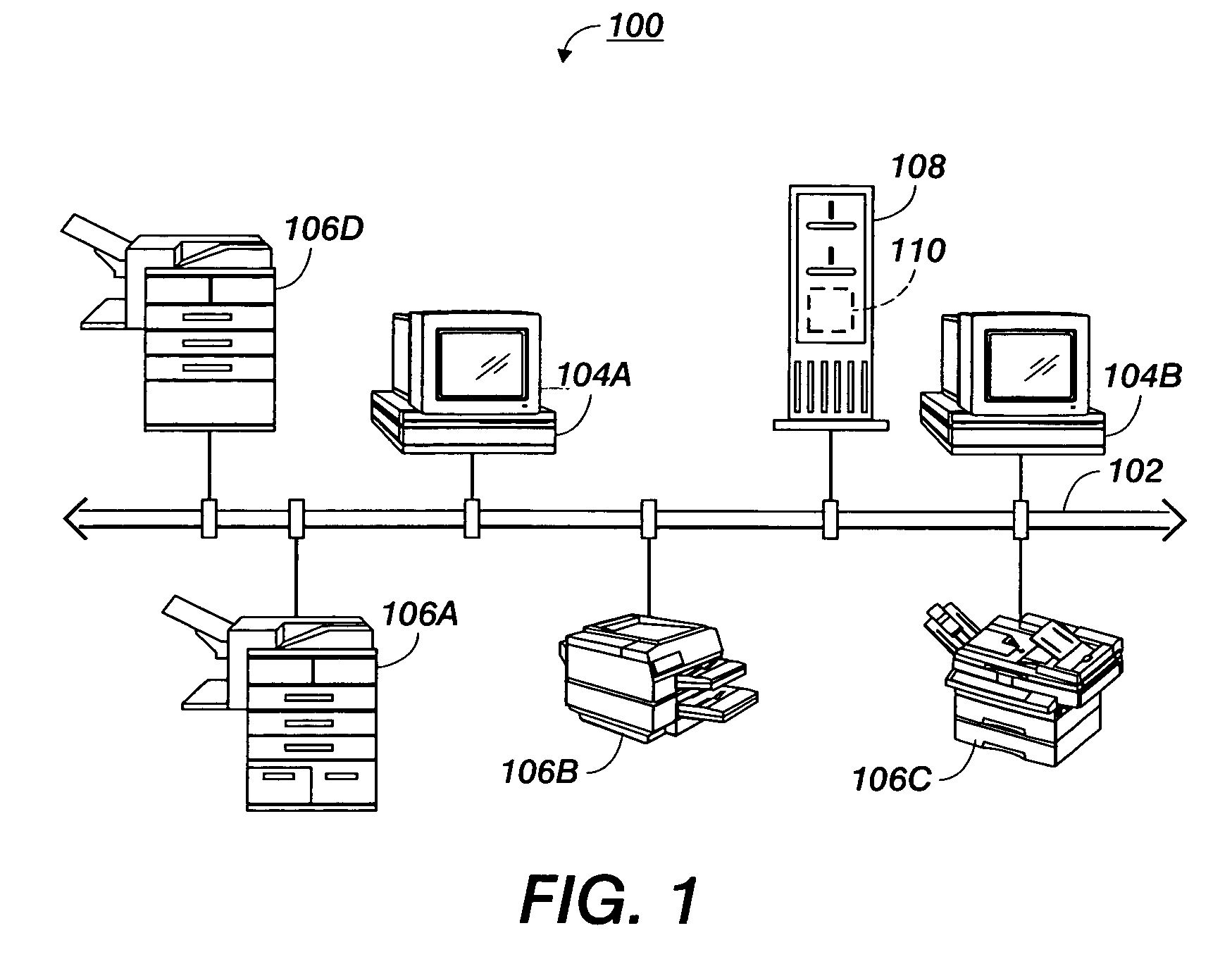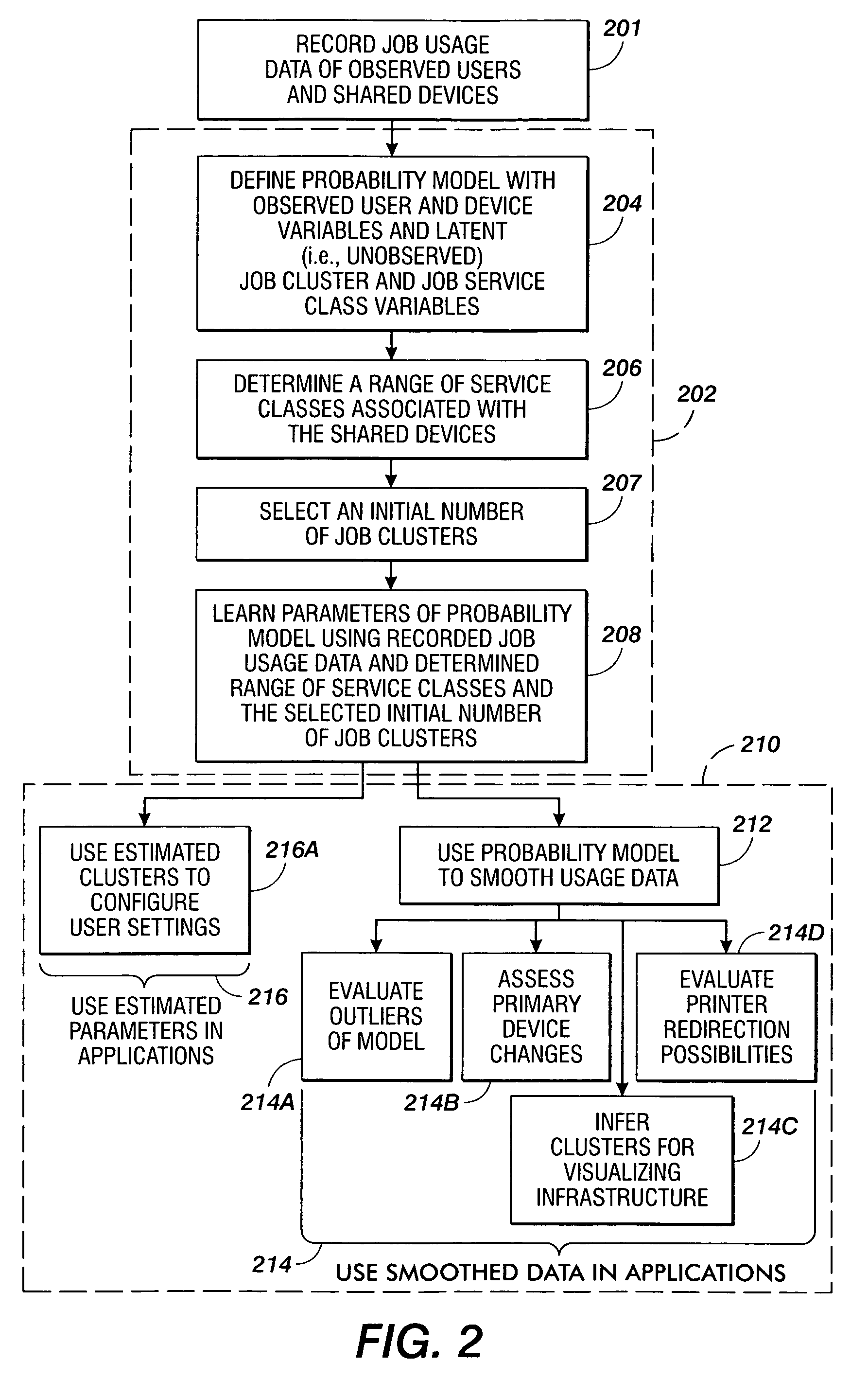Method, apparatus, and article of manufacture for estimating parameters of a probability model on shared device usage probabilistic semantic analysis
a probability model and probability model technology, applied in the field of probability model estimation parameters, can solve the problems of device-centric or user-centric views that may not consider other aspects forming part of the recorded usage data of shared devices, device-centric and user-centric views may not take into account the attributes of users sending jobs to devices and the class of jobs performed on devices
- Summary
- Abstract
- Description
- Claims
- Application Information
AI Technical Summary
Benefits of technology
Problems solved by technology
Method used
Image
Examples
first embodiment
[0057]In a first embodiment, the maximum likelihood estimator at [3] is not always satisfactory when the number of jobs recorded in the usage log is small. That is, when prior knowledge is defined using uniform priors (i.e., p(θ)=constant), it may occur that during the analyzed period, a given user u never performs jobs of a given service class k (e.g., never prints in color), in which case the maximum likelihood estimator at [3] will yield parameter πku(K)=0, meaning that user u never uses service class k.
second embodiment
[0058]In a second embodiment, a satisfactory result may be achieved when the number of jobs recorded in the usage log is small if prior knowledge is available on the user's needs in terms of service classes, to compensate for insufficient data. Accordingly, a range of service classes associated with the shared devices may be determined at 206, where the a priori information is defined using informative priors. In one embodiment at 206, it is assumed a priori that the cluster parameter π.u(K) for a user u is itself a random variable following a Dirichlet distribution, as follows:
π.u(K)˜D((mk)k=1, . . . , NK),
where NK hyper-parameters (mk)k=1, . . . , NK are introduced, and which may be seen as pseudo-counts of usage of each job service class given a priori for a “prototypical” user. For example, the NK hyper-parameters (mk)k=1, . . . , NK may be defined using a percentage of jobs per service class or a count per service class. A Dirichiet distribution may be assumed for the a priori ...
PUM
 Login to View More
Login to View More Abstract
Description
Claims
Application Information
 Login to View More
Login to View More - R&D
- Intellectual Property
- Life Sciences
- Materials
- Tech Scout
- Unparalleled Data Quality
- Higher Quality Content
- 60% Fewer Hallucinations
Browse by: Latest US Patents, China's latest patents, Technical Efficacy Thesaurus, Application Domain, Technology Topic, Popular Technical Reports.
© 2025 PatSnap. All rights reserved.Legal|Privacy policy|Modern Slavery Act Transparency Statement|Sitemap|About US| Contact US: help@patsnap.com



